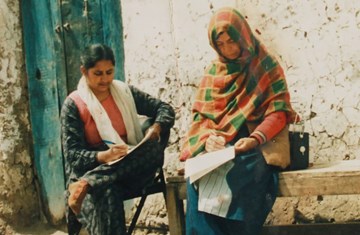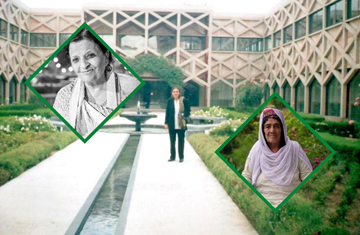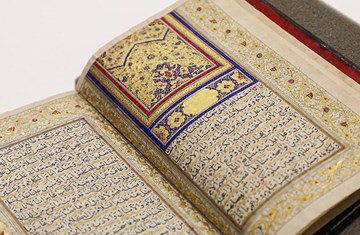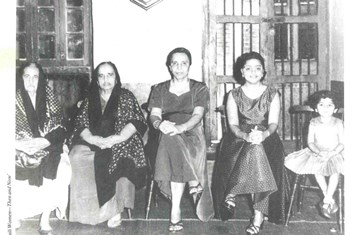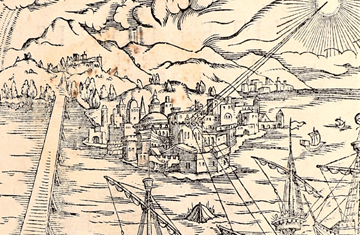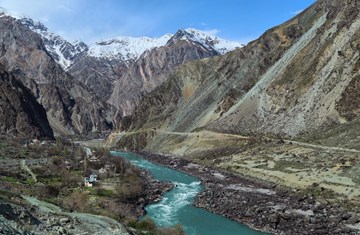Inspiring stories, lasting legacies: Laghle Zamrud
On this International Women’s Day, we celebrate the inspiring story of Laghle Zamrud (1949–2023), the first female healthcare professional from the Chitral region of Pakistan. Laghl's story is one of strength and resilience and serves as a testament to the remarkable lives of Ismaili women.��
Born in 1949 in Booni, a picturesque village nestled amidst the rugged mountains of Upper Chitral, Laghle Zamrud faced significant obstacles to obtaining an education, as was the case for many girls in her day. Undeterred by societal norms, and recognising that she was destined for greater things, Laghl seized an unlikely opportunity to attend the local boys' school in her village.��
��

(December 2022) From the Oral History Project
“There was no custom for female education. There was only one primary school for boys, and the secondary school was in Chitral (Town). My father admitted me to the boys-only school to take care of my younger brother.
It was never for the purpose of getting me educated, but only to accompany my brother to and from school... This way I got my education in a boys’ school. I am lucky.”��
Upon completing the 8th grade, Laghl's further education was blocked by the lack of schools in or around her village where she could continue her studies. This was compounded by a societal resistance to female education. However, Laghl's father supported her and sent her to Chitral Town, 100 kms away from her village, to pursue her matriculation.

Laghl receiving a certificate from Saeed Ullah Khan, Chairman of the Aga Khan Health Service, Upper Chitral, upon the completion of her training.
(Date Unknown) Courtesy: Family Archive
In a stroke of luck, Laghl's name was later put forward for training as a Lady Health Visitor (LHV) by the Ismaili leadership who visited Chitral in 1964. An LHV is a special cadre of healthcare professionals introduced to Pakistan in the 1950s to provide basic nursing care, maternal and child health services, and training to community workers in rural areas. She underwent a comprehensive two-year training programme at the Janbai Kassim Vali Khoja Ismailia Maternity Home in Karachi, co-founded by His Highness Sultan Mahomed Shah Aga Khan III, and later known as the . Returning to Chitral in 1967, Laghl embraced her role as the region's first trained female health professional, despite facing numerous challenges in the inaccessible terrain. She fondly recalls her proud return to her hometown and the dedication required to serve the remote communities of Chitral.��

Laghle Zamrud (far left) at the ITREB office in Booni, Chitral, Pakistan, in a group photo marking the Aga Khan’s visit to Pakistan
(November 1987) Courtesy: Family Archive
“My everyday routine was hectic. I started at 7 am in the morning. I paid visits to every sub-centre on a monthly basis. We had to walk to attend cases. Now people have jeeps which take them to places. Earlier, I was the only health worker here as there was no doctor. I was the doctor and the LHV, and everything.”��

Laghl (right) on an immunisation visit in Chitral.
(Date Unknown) Courtesy: Family Archive.
Laghl tirelessly served the rural communities of Chitral for 37 years, inaugurating around 23 healthcare centres across the region. Upon her retirement in 2004, she received an award of appreciation for her service with the Aga Khan Health Service, Pakistan. ��

Courtesy: Family Archive
Laghle Zamrud passed away in October 2023, but her legacy continues through the healthcare centres she established. Equally important are the countless young females from Chitral she inspired to follow in her footsteps to study healthcare and serve their communities with pride and dedication.��
About the Oral History Project
Laghle Zamrud was interviewed in December 2022 in her hometown of Booni in Khowar (a Dardic language primarily spoken in Chitral and the Ghizer region of Gilgit-Baltistan in Pakistan).��
As part of its aims, the IIS Oral History Project (OHP) is dedicated to celebrating women by documenting their life stories, memories, and experiences. Through recording, preserving, and sharing personal narratives from various social, cultural, linguistic and regional contexts, the project aims to honour the contributions, resilience, and wisdom of Ismaili women representing their diverse communities around the world.��
��


